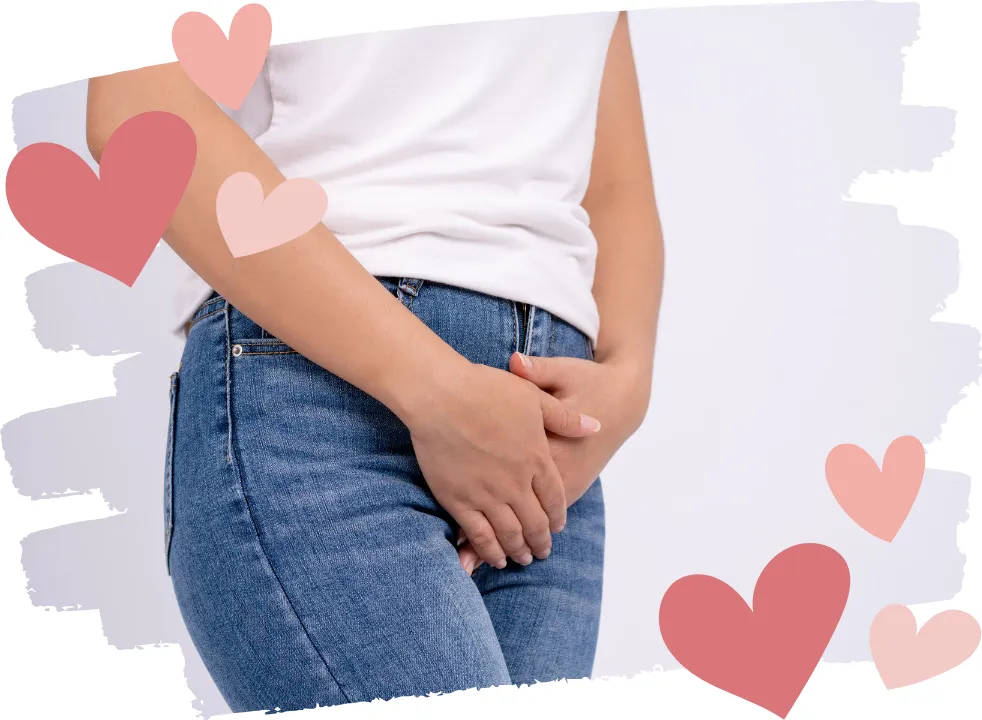
Vaginal Dryness Sucks—But You Don’t Have To Suffer
✨ Perimenopause Power Moves: 5 Simple Nutrition Shifts to Help You Feel Like Yourself Again! ✨
Grab your free guide today!
👉 Download Now!
Vaginal Dryness Sucks—But You Don’t Have To Suffer
How to Reclaim Comfort, Confidence, and Moisture (Yep, We’re Going There)
"Life doesn't end with menopause; it's the beginning of a new adventure. Strap in and enjoy the ride!" — Dame Helen Mirren
The Silent Ache: Why This Matters More Than You Think
Let’s be real—vaginal dryness is about as fun as wearing sandpaper as underwear. But here’s the thing: this isn’t just some annoying side effect of aging. It’s your body’s quiet cry for help. And ignoring it? Not the move.
I've felt the discomfort. The awkwardness. The is-this-my-life-now kind of dread. But trust me—there are solutions. And more importantly, there’s hope.
What’s Actually Going On Down There?
Meet estrogen—the hormone MVP keeping your vaginal tissue plump, juicy, and elastic. But during perimenopause, estrogen takes a nosedive, and suddenly your once-resilient nether regions feel… well, parched.
“It’s the place where all the most painful things have happened. But it has given me indescribable pleasure.” — Madonna
And heads up: it’s not just dryness. Estrogen loss impacts your bladder, urethra, and pelvic floor too. That pee-when-you-sneeze situation? The random urgency? The post-intimacy sting? All connected.
Here’s What Actually Helps
1. Lubricants: Not Just for Sexy Time
Think of lube as your new BFF—hydrating, comforting, and 100% judgment-free. Look for water- or aloe-based options that ditch the fragrances and weird chemicals.
2. Daily Moisturizers: Yes, They’re a Thing
These go deeper than lube. Moisturizers work behind the scenes to rebuild hydration and prevent that dry, tight, itchy feeling.
“The pelvic floor relies heavily on estrogen to do its thing... Dryness, burning, spotting, and pelvic floor dysfunction are real symptoms of low estrogen.” — Sara Reardon, PT, DPT, WCS
3. Bioidentical Vaginal Estrogen Therapy
If your tissues are really throwing a tantrum, vaginal estrogen can help—targeted relief, low risk, and big results. Talk to your doc about creams, tablets, or rings.
4. Pelvic Floor Therapy: The Unsung Hero
Leaking when you laugh? Avoiding trampolines like your life depends on it? Time to call a pelvic floor specialist. These pros help rebuild muscle tone, restore function, and boost confidence where it counts.
5. Hydrate From the Inside
Water is great, but your tissues need fat too. Load up on Omega-3s from salmon, flaxseeds, walnuts, and high-quality fish oil. Your vagina (and your brain) will thank you.
6. Self-Care, but Make It Vagina-Friendly
Gentle things go a long way:
Warm Epsom salt baths
Cool compresses for quick relief
Coconut or vitamin E oil for that extra TLC
The Emotional Side: Yep, It’s Real
Vaginal dryness isn’t just a physical buzzkill—it can shake your confidence, mess with your relationships, and make you feel like a stranger in your own skin. But here’s the truth:
You’re not broken. You’re just shifting. And you deserve support.
Talk to your partner. Laugh with your bestie. Cry if you need to. But don’t stay silent.
Want a sassier take on this conversation? Read: Is Your Vagina Talking? Here’s How to Listen and Thrive. Trust me, it’ll make you laugh and learn.
When to See a Doctor
If you’re dealing with constant discomfort, spotting, pain, or infections—don’t wait. Book the appointment. Get the help. You don’t have to just “deal with it.”
Final Take: Your Vagina Deserves a Comeback
Perimenopause may bring dryness, but it doesn’t get the final say. Whether it’s bioidentical hormones, pelvic floor therapy, or lube that makes your bathroom drawer blush—there are ways to feel like you again.
So listen to your body. Show her some love. And don’t let anyone tell you this is just how it has to be.
You’ve got this—and you’re never alone.
Hormonally Yours,
Kimberlee Erin
Just a heads-up: I’m a Certified Menopause Coaching Specialist and Holistic Nutritionist, and while I love sharing what’s worked for me and my clients, this blog is for informational purposes only. It’s not a substitute for medical advice. Always check in with your healthcare provider before starting new supplements, hormones, or treatments—especially since every woman’s perimenopause journey is different. You deserve personalized care that truly fits you.